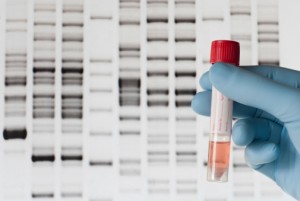 The College of American Pathologists (CAP) Transfusion Medicine Resource Committee (TMRC) recently summarized their recommendations for patients with serologic weak D phenotypes and the administration of Rh immune globulin (RhIG).
The College of American Pathologists (CAP) Transfusion Medicine Resource Committee (TMRC) recently summarized their recommendations for patients with serologic weak D phenotypes and the administration of Rh immune globulin (RhIG).
Currently, most hospital laboratories do not have standard practices for handling individuals with weak D phenotypes. Unnecessary RhIG injections are given to pregnant women with weak D phenotypes, and transfusion of RhD-negative RBCs occur when more abundant RhD-positive RBCs could be used in patients with weak D phenotypes instead. The CAP TMRC recommends that RhD genotyping be performed for pregnant women, newborns and potential transfusion recipients when a discordant typing result or a serologic weak D phenotype is detected. Patients with weak D genotypes type 1, 2 or 3 should be treated as RhD-positive for RhIG prophylaxis and transfusions. A cost-effectiveness analysis found that RhD genotyping for pregnant women with serologic weak D phenotypes may be clinically beneficial for guiding RhIG injections without increasing overall costs.
References
1. Sandler SG, Flegel WA, Westhoff CM, Denomme GA, Delaney M, Keller MA, Johnson ST, Katz L, Queenan JT, Vassallo RR, Simon CD. It’s time to phase in RHD genotyping for patients with a serologic weak D phenotype. Transfusion 2014. DOI: 10.1111/trf.12941.
2. Using Molecular Methods to Resolve Weak D Phenotypes. Accessed online December 10, 2014. www.aabb.org/annual-meeting/attend/2014/Pages/Using-Molecular-Methods-to-Resolve-Weak-D-Phenotypes.aspx
